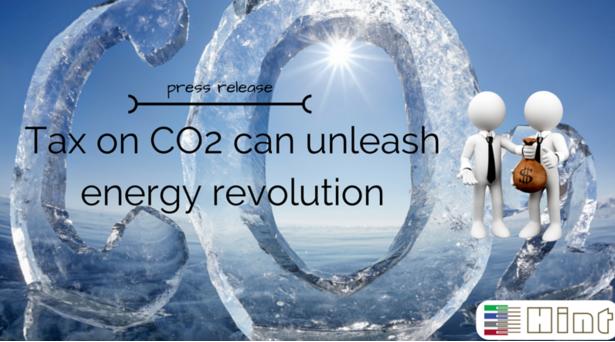
The technologies to increase energy efficiency and to reduce emissions already exist, but are not yet profitable.
A CO2 tax for companies should be the foundation of the imperative renewable energy revolution. The fact that the recently completed COP21 climate agreement does not mention this political measure with respect to reducing global emissions, is a major missed opportunity, according to Wouter Last, president of plant IT and engineering specialist at Hint. “It is high time that global politics take measures to make the use of fossil fuels expensive and the development of energy-efficient technology profitable. An emission tax is the best way.”
“At the moment, the biggest polluters are the manufacturing industry, transport, and the real estate sector. All three induce high CO2-emissions. On the one hand, this is because energy efficiency is often not a spearhead for processes and technologies. On the other hand, it is because they use the most polluting fuels,” said Wouter Last, whose company Hint is working globally for many big energy producers and the process industry.
Energy revolution in a few years
The technologies to increase energy efficiency and to reduce emissions already exist, but are not yet profitable. The market also offers the industry little incentive to use alternative energy sources. Last: “Coal and oil are readily available and cheap. It is therefore understandable that companies choose those raw materials. Also, developing and using sustainable technology is not economically viable. Blowing off CO2, on the other hand, is just about free. A carbon tax tackles this problem at the basis, because it makes the alternatives more attractive. This can unleash an energy revolution within a few years from now.” However, the countries that have drawn up plans together in Paris to reduce CO2 emissions at the global level and to restrain the rise in temperature on Earth, don’t consider such a tax to be a solution.
Alternative energy and sustainable technology
When the financial concerns are eliminated, there is nothing to prevent companies from becoming more sustainable. According to Last, natural gas is an obvious fuel alternative that could be deployed at very short notice. “Natural gas is more efficient in consumption than oil and produces considerably less CO2emissions. Gas resources are also more than sufficient to replace oil and coal. And, with some exceptions, gas has many applications, both for industry and households.”
In addition to reducing emissions, companies can also deal with any remaining emissions in a more environmentally friendly way. Innovation offers the solution: “I’m thinking of CO2 storage in old gas wells, which will also free the last bit of gas from it. The technology to consume in a much more economical way already offers many possibilities, too. Heat storage in buildings and more advanced electric transport are good examples of this. At present, these innovative methods are not yet economically viable. The required capital exceeds the savings, meaning the industry needs to be stimulated financially before they’ll pick it up seriously. This can be accomplished quite easily, with a hefty tax on greenhouse gas that is released in companies’ production processes. That is why I think it is remarkable and sad that the world leaders do not choose this route in their fight against global warming.”
Filed Under: News, Policy





Technologies to reduce emissions not yet profitable?
In many cases this statement is simply wrong.
In the vast majority of cases, the lifetime cost of LED lighting cannot be beaten.
The marginal extra cost of a high efficiency inverter controlled air conditioning unit is small enough to be quickly recovered.
Fitting spray inserts in washroom taps can have a payback of weeks.
In Germany, the marginal extra cost of building to Passivhaus standards is small, and easily recovered in reduced running costs.
These are just a few examples.
The lack is more in political will and public knowledge than in profitable ways to reduce emissions.